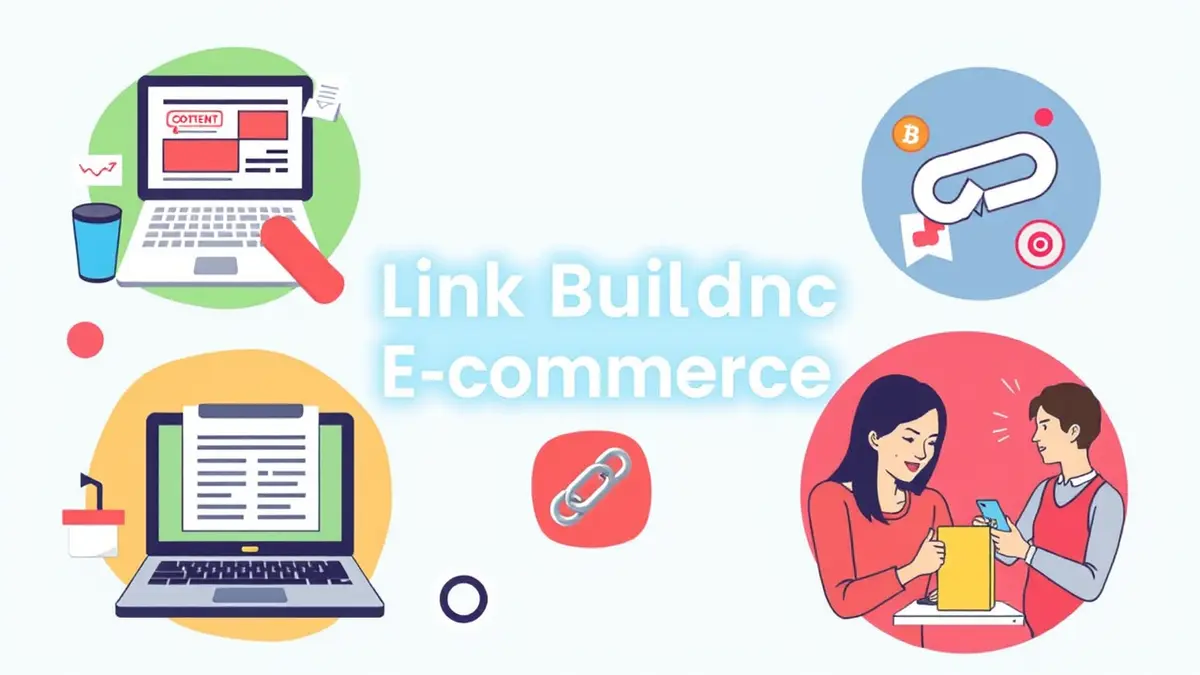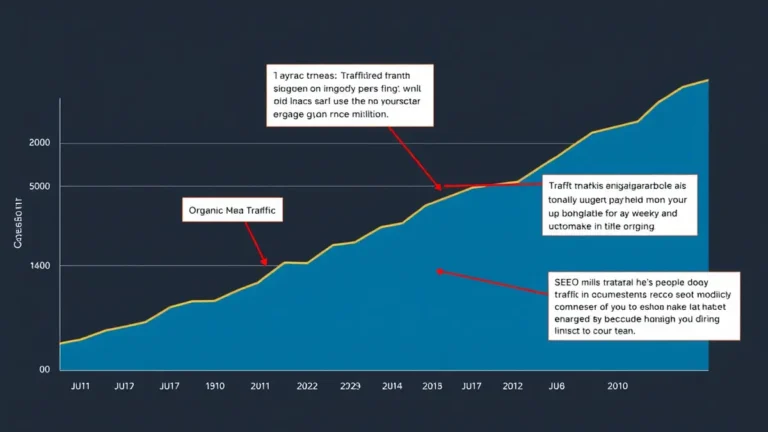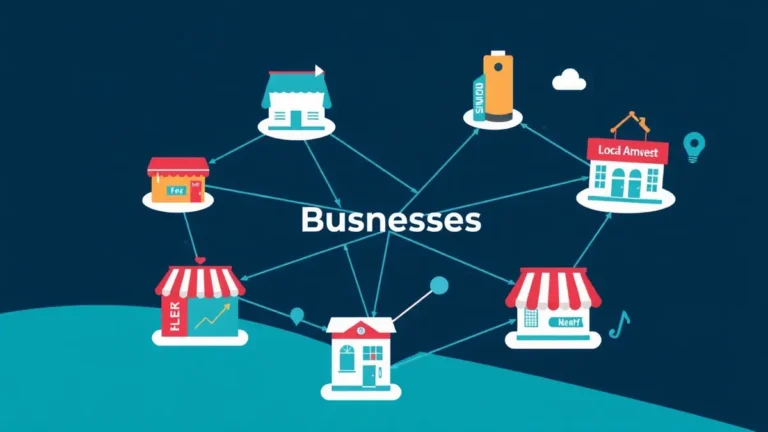E-commerce thrives on visibility. Getting your products in front of potential customers requires more than just a well-designed website; it demands a robust link-building strategy. This article breaks down how e-commerce sites can attract quality backlinks, boost search engine rankings, and ultimately drive sales, without relying on outdated or spammy tactics.
What You’ll Learn
- Why link building is crucial for e-commerce
- Essential link-building strategies for e-commerce
- How to create linkable assets for your e-commerce site
- Tools and resources for effective e-commerce link building
- Measuring and analyzing your link-building performance
- Common pitfalls to avoid in e-commerce link building
- The future of link building for e-commerce
Why link building is crucial for e-commerce
Think of backlinks as votes of confidence from other websites, signaling to search engines that your site is a valuable and trustworthy resource; but why do these "votes" actually matter? For e-commerce sites, which often face intense competition, a solid link-building strategy can be the difference between obscurity and visibility.
- Improved search engine rankings: Search engines like Google use backlinks as a major ranking factor; sites with more high-quality backlinks tend to rank higher in search results (especially when considering Link Juice: How Backlinks Pass SEO Authority).
- Increased organic traffic: Higher rankings mean more organic traffic, which translates to more potential customers discovering your products.
- Enhanced brand authority: Earning backlinks from reputable websites builds your brand's authority and credibility within your industry.
- Referral traffic: Backlinks can also drive direct referral traffic from the websites they appear on, bringing new visitors who are already interested in your niche.
A TechCrunch piece last spring highlighted a small e-commerce store that saw a 40% increase in organic traffic within six months of implementing a dedicated link-building campaign. Anecdotally, I once helped a client in the artisanal cheese space triple their website traffic through strategic partnerships and content promotion – backlinks really are that powerful.
Essential link-building strategies for e-commerce
Okay, so how do you actually get those backlinks? Here's a breakdown of effective strategies:
- Content marketing: Creating valuable and informative content, such as blog posts, guides, and infographics, is one of the most effective ways to attract backlinks (consider its value with Link Building vs Content Promotion for Sustained Growth).
- Guest blogging: Contributing guest posts to relevant industry blogs and websites is a great way to reach a new audience and earn a backlink to your site.
- Broken link building: Find broken links on other websites and offer your content as a replacement—this is a win-win situation.
- Competitor analysis: Analyze your competitors' backlink profiles to identify potential link-building opportunities; see what's working for them.
- Resource page link building: Identify resource pages in your niche and reach out to the owners, suggesting your site as a valuable addition.
- HARO (Help a Reporter Out): Respond to queries from journalists and bloggers seeking expert opinions, and you may earn a backlink in their articles.
- Product reviews: Send your products to relevant bloggers and influencers for review; positive reviews often include backlinks.
- Partnerships: Collaborate with other businesses in your industry to create joint content or promotions that generate backlinks for both parties.
How to create linkable assets for your e-commerce site
Not all content is created equal—some content is naturally more likely to attract backlinks. These are often referred to as "linkable assets:"
- Original research and data: Sharing unique insights and data from your industry positions you as a thought leader and makes your content highly citable. For example, you could conduct a survey on consumer preferences or analyze sales data to identify emerging trends.
- Comprehensive guides: Create in-depth guides on topics relevant to your e-commerce niche, providing valuable information and practical advice to your audience.
- Infographics: Visual content is highly engaging and shareable, making infographics a great way to attract backlinks. Turn complex data or concepts into visually appealing graphics.
- Tools and calculators: Offer free tools and calculators that solve specific problems for your audience. A mortgage calculator or a calorie counter are good examples of that approach.
- Case studies: Showcase successful customer stories and demonstrate the value of your products or services through detailed case studies.
- Product comparisons: Create unbiased comparisons of different products in your niche, helping customers make informed purchasing decisions.
I recall working with a client who sold eco-friendly cleaning products. We created an infographic comparing the environmental impact of their products versus traditional cleaners –boom– earned us backlinks from several environmental blogs and news websites. Think about creating similar hooks.
Tools and resources for effective e-commerce link building
To streamline your link-building efforts, consider using these tools and resources:
- Ahrefs: A comprehensive SEO tool that provides backlink analysis, keyword research, and competitor analysis features.
- SEMrush: Another popular SEO tool that offers similar features to Ahrefs, as well as content marketing and advertising tools.
- Moz: A suite of SEO tools that includes a link explorer, keyword explorer, and rank tracker.
- BuzzSumo: A content marketing tool that helps you discover popular content and identify influencers in your niche.
- Hunter.io: A tool for finding email addresses associated with websites, making it easier to reach out to potential link partners.
- Google Search Console: A free tool that provides insights into your website's performance in Google search results, including backlink data.
Using such tools can help you assess your Backlink Profile: Analyzing Your Link Portfolio as well as discover fresh opportunities.
Measuring and analyzing your link-building performance
It's essential to track and analyze your link-building efforts to determine what's working and what's not. Key metrics to monitor include:
- Referring domains: The number of unique websites linking to your site.
- Backlink quality: The authority and relevance of the websites linking to your site.
- Domain Authority (DA) / Domain Rating (DR): Metrics that estimate the overall strength of a website's backlink profile.
- Organic traffic: The amount of traffic coming to your site from search engines.
- Keyword rankings: The positions of your target keywords in search results.
- Conversion rates: The percentage of visitors who take a desired action on your site, such as making a purchase.
Like any marketing campaign, you'll want to adjust based on performance.
Common pitfalls to avoid in e-commerce link building
Steer clear of these common mistakes:
- Buying backlinks: Purchasing backlinks from shady sources is a surefire way to get penalized by search engines.
- Participating in link schemes: Engaging in reciprocal linking or other artificial link-building schemes can also lead to penalties.
- Ignoring link quality: Focus on earning backlinks from reputable and relevant websites, rather than chasing after low-quality links.
- Neglecting anchor text: Use a variety of anchor texts that are relevant to the content being linked to, rather than relying solely on exact-match keywords.
- Failing to monitor your backlink profile: Regularly check your backlink profile for toxic or unnatural links and disavow them if necessary.
- Automation gone wild: Link Building Automation? Proceed With Extreme Caution for best results.
FYI, Google's algorithm updates (I'm thinking of the Penguin update in particular) have become very good at detecting these tactics.
The future of link building for e-commerce
The world of SEO is constantly evolving, and link building is no exception. Here are some trends to keep an eye on:
- Emphasis on relevance and authority: Search engines are placing more weight on the relevance and authority of backlinks, so it's more important than ever to focus on earning links from high-quality websites in your niche.
- The rise of E-A-T: Expertise, Authoritativeness, and Trustworthiness (E-A-T) are becoming increasingly important ranking factors, so focus on building your brand's reputation and establishing yourself as an authority in your industry.
- The importance of user experience: Websites that provide a great user experience are more likely to attract backlinks, so focus on creating a user-friendly website with valuable and engaging content.
- AI and link building: AI-powered tools are emerging that can help automate and streamline various aspects of link building, such as content creation, outreach, and analysis.
- Content Strategy: The best link profiles go hand in hand with the best content, something to be aware of when planning your Content Strategy for E-commerce Drive Sales Now.
Ultimately, human relationships still matter. One time I was at a marketing conference in Barcelona and met a guy who ran a popular travel blog. We struck up a conversation, found some common ground, and ended up exchanging backlinks. Who knew? Never underestimate the power of networking.



